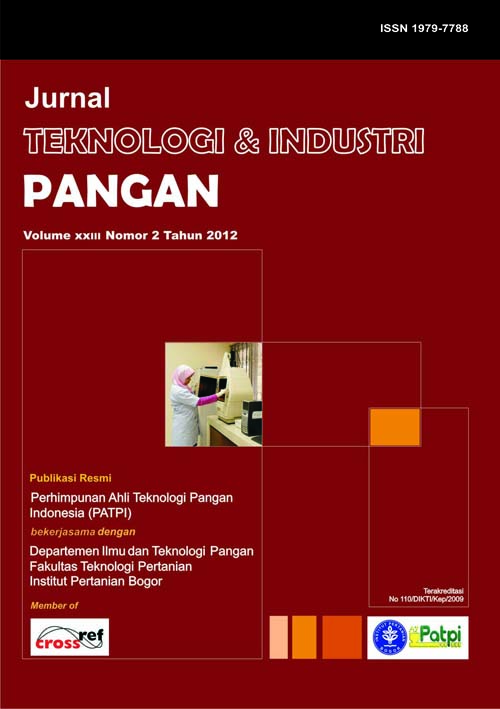POTENSI LACTOBACILLUS YANG DIISOLASI DARI AIR SUSU IBU UNTUK MENCEGAH DIARE [Potential of Lactobacillus Isolated from Breast Milk to Prevent Diarrheae]
Abstract
Some of Lactobacillus species isolated from breast milk are known to have antimicrobial activities, including against Escherichia coli. The aims of this study were to evaluate the antimicrobial activity of Lactobacillus species isolated from breast milk against enteropathogenic Escherichia coli strain K1.1 and the effectiveness of the Lactobacillus isolates to prevent diarrhea on rats (Sprague Dawley). The infective dose of E. coli K1.1 to induce diarrhea without causing death were also determined. Based on the antimicrobial activity there were three isolates of Lactobacillus that exhibited good inhibition againts E. coli K1.1, i.e. Lactobacillus rhamnosus R14, L. rhamnosus R23, and L. rhamnosus B16. Determination of E. coli infective dose showed that 108 CFU of E. coli K1.1 was sufficient to induce diarrhea on rat without causing death. The number of diarrhea rats and severity level in group treated with L. rhamnosus were lower than groups untreated with the Lactobacilli. This study showed that the three L. rhamnosus isolated from breast milk were able to prevent diarrhea due to infection of E. coli K1.1 when the Lactobacillus was regularly introduced prior to infection. L. rhamnosus R23 showed the best capabilities of preventing diarrhea in rats as compared to two other isolates of Lactobacillus. The incidence of diarrhea correlated with the number of lactobacilli in the feces. However when the period of diarrhea ceased, there were no difference in total lactobacilli and E. coli in the caecum, colon and feces between rats treated with L. rhamnosus and the control. This finding revealed the L. rhamnosus isolated from breast milk were potential for prevention of diarrhea when consumed regularly.

